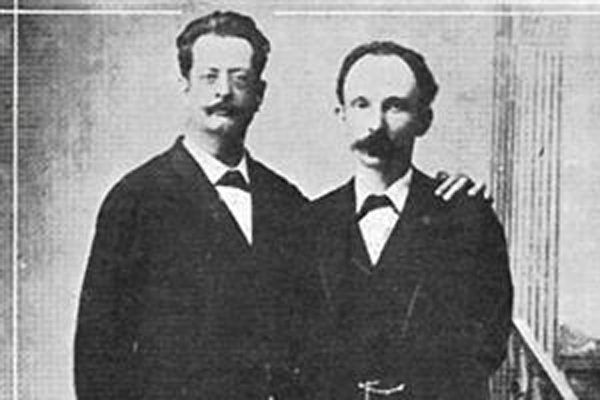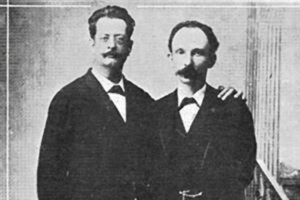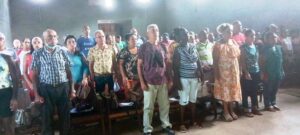José Martí’s best friend.


The unforgettable premiere of the film Innocence was one of the greatest successes of Antillean cinema to awaken in historiamantes the curiosity for the life and work of Fermin Valdes Dominguez, because the best friend of our National Hero, like this, is one of the most influential Cuban figures of the nineteenth century.
Born on July 10th, 1853, although Fermín was among the thousands of infants abandoned in the Royal House of Charity of Havana, he was an extroverted, spoiled child with a condescending discipline and intelligence that turned him into a distinguished writer and orator, passionate to the point of recklessness.
Since his primary studies he met José Julián Martí Pérez and they developed a growing friendship that, besides transcending the academic environment and being influenced by his teacher Rafael María de Mendive’s thirst for knowledge and independence, turned them into close companions in the struggle.
The uprising in arms of Céspedes on October 10th, 1868 and the entry into force of the Law of Freedom of the Press in Cuba on January 9th, 1869 were positively received and, among the avalanche of printed propaganda that flourished, El Diablo Cojuelo was born, a newspaper where both Fermín and Martí evidenced their commitment to the independence of the Island.
At that time, Martí’s youthful rebelliousness and political commitment corresponded with Fermín’s, whose house served as a stage for multiple conspiracies between them and other disciples of Mendive and other pro-independence sympathizers. Not only did they consolidate their intellectual and human formation there, but also the humanist, revolutionary and patriotic vocation that they had been building since before.
A year after enrolling as a medical student at the Royal and Literary University of Havana, he and a group of medical students were accused of desecrating the tomb of the Spanish journalist Gonzalo de Castañón and the unjust judicial process resulted in the execution of eight of those young people on November 27th, 1871, an event that would mark him forever.
Reluctant to let the criminal act go unpunished, he never stopped in his eagerness to vindicate the slander of his deceased comrades. Not only did he contact Fernando de Castañón, but with his approval and the evidence of the pristine state of his father Gonzalo’s niche, he publicly proved the innocence of his friends and a monumental tomb was erected in their honor.
Fermín belonged to dissimilar institutions such as the Anthropological Society of the Island of Cuba, the Autonomist Liberal Party, the Center of Instruction and Recreation, the first Masonic lodge of Santiago de las Vegas, the Economic Society of Friends of the Country, the Society of Clinical Studies of Havana, the Editorial Board of the Revista Crónica Médico-Quirúrgica de La Habana, among others, while working as a journalist and collaborator of media such as El Cubano (founded by him), El País, with its Folletín section, El Triunfo, among other publications.
He was also chief of health of the fourth corps of Las Villas, representative to the Constituent Assembly of Jimaguayú, in September 1895, undersecretary of Foreign Relations, chief of health of the first corps of Oriente and occupant of the Secretariat of Foreign Relations, as well as Colonel and member of the Patriotic Board of Havana founded on October 10th, 1907 in opposition to the annexationist current that during the second U.S. military intervention tried to turn Cuba into a protectorate of the United States.
On June 13th, 1910, previously and seriously ill, Fermín Valdés Domínguez died at the age of 56, leaving behind a prolific political and professional career and a decorous action against the cruelty of the colonial regime, to the point of not bending even for a second to prove the innocence of his victims.
Written by Yadiel Barbón Salgado.




